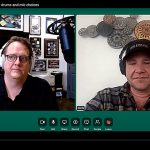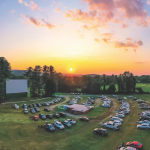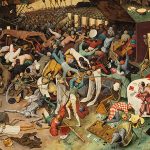We knew that the revenue mode for the music industry was shifting to live performances more than a few years ago, back in 2002, when Princeton economics professor Alan Krueger established that 31 of the 35 top-grossing music artists that year made more money from concerts than from record sales, a trend that has continued through most of the decade.
Music Business 2.0
It was the kind of research nugget that, put together with a slew of others, built the foundation of Music Business 2.0, namely Live Nation and AEG Live, the two corporate behemoths that didn’t wait around for mere evolutionary forces to compel consolidation of an industry. It’s as if in 1968 there had been the same Big Four record labels we have now, and all the little Fantasys and Kama Sutras and Bells had never existed.
Thus it’s eminently worth keeping an eye on the corporatized response to the ticketing side of the business, now that it’s part of an even bigger power play, in the wake of Ticketmaster’s merger agreement with Live Nation, which will create challenges and maybe some opportunities for live sound providers.
Ticketing has always been one of the sleazier parts of a sleazy-by-nature business. The scalper slouching on the corner never had anything on TicketMaster’s execs lurking in their offices, manipulating the secondary resale markets. The perfect illustration came to light back in February when Bruce Springsteen dropped a dime on how Ticketmaster’s main sales portal redirected fans to that company’s TicketsNow secondary sales Web site, where tickets to Springsteen’s shows were more costly. But how would you know that if you couldn’t get in to the main Web site to get regular-priced tickets in the first place?
Ticketmaster blamed the Web site redirecting fiasco on a “credit card glitch,” but TicketsNow still had to pay a $350,000 settlement with the New Jersey Attorney General’s office, and the controversy has put a more intense spotlight on the whole Live Nation/Ticketmaster merger, which still faces congressional scrutiny. Critics of the merger, including Springsteen and others, believe it would concentrate too much power in one company. The two companies would control 80 percent of concert ticket sales if they merged, according to New York Senator Charles Schumer, one of those critics.
How It Affects FOH
Regardless of how individual artists are responding to this — Springsteen stays true to his blue-collar fan base, U2’s weight allows them to modify the deal, and Bon Jovi says, “Where do I sign?” — the effects of something this significant will ripple back to the FOH position at some point and in several possible ways:
• Heightened control of ticketing is de facto enhanced control over seating configurations. It’s not like an FOH position or a stack has never been moved due to line-of-sight considerations, or to make way for more or “better” customer seating, but I would expect seat maps to be increasingly devised and drawn well before technical considerations like sound and lights are taken into account. This is a good point to bring up to artist management now.
• The concert experience is going to become more and more like a broadcast event, using feeds from audio sources other than the stage but which may need to go through the PA. Backstage, off stage and outside the venue are going to be integrated into the pre- and post-concert experience, projected pre-show into the venue via video. Already, Live Nation is using stages set up along the pathways between parking lots and mass transit to main venue gates on which local and regional bands act as warm-ups for the indoor experience. All of these bands are looking for exposure as well as a few bucks. Letting the audio of their live performance follow concertgoers inside and to their seats could be golden to the musicians but will require some serious logistics. Expect a lot of fiber in your future — and not just in your diet.
• Recordings of live concerts may prove valuable as after-show premium products. Two years ago Live Nation tried to implement a post-show CD technology (which I wrote about here) but it never gained traction. But streamed and downloadable versions might be better suited for that slot. The really high end of the spectrum will be using remote trucks to make the recordings, but if this kind of productization of the concert takes off, that Pro Tools rig you take out now and then will become a fixture in the rack. The question will be, will you always be expected to run it, too?
Ultimately, though, the real challenge, as Ticketmaster/Live Nation continues to create “experiential” ticket packages that combine good seats with VIP backstage access to the artist after the show, like the “Zone Backstage Tour Experience” for the U2 show at Soldier Field in Chicago, offered with a starting bid on Ticketmaster’s auction site priced at $1,515, or propositions, like KISS’ and Wal-Mart’s that compel merchandise sales with tickets, is that fans stop supporting big tours, either out of lack of funds (has anyone told Barry Diller about the recession?) or terminal frustration. It won’t matter how small the FOH footprint gets or what kind of gear is hanging from the trusses if no one’s in the seats.



